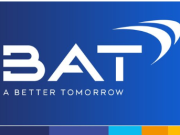Subsequently earlier this month, Altria announced that the acquisition of NJOY Holdings, Inc. had indeed been completed. The firm’s CEO Billy Gifford, said that this acquisition is a momentous step forward in achieving Altria’s goal to move beyond smoking. “We are pleased to have received antitrust clearance and we are now fully focused on responsibly accelerating U.S. adult smoker and adult vaper adoption of NJOY ACE, currently the only pod-based e-vapor product to receive marketing authorization from the FDA.”
Crossing over to the dark side?
Meanwhile Dave Dobbins, the former COO of the Truth Initiative, the biggest anti-tobacco association in the U.S., has controversially left the group to join the tobacco company. Naturally many are questioning whether he made the move because he was offered some crazy amount of money, while other believe that he has joined the tobacco industry in a bid to steer it in the right direction and make a difference.
American Vaping Association (AVA) president Gregory Conley believes that Dobbins has the right intentions. “Dobbins isn’t a bad guy. He comes from the era when hippies who wanted to change the world entered tobacco control, in contrast to the low-energy, money-hungry, generic liberals that fill the field today. He’ll do more positive for the world at Altria than at 2023 Truth.”
On his part, the former COO said that his aim is to assist Altria in their efforts to transition to a smoke-free business via a focus smoke-free nicotine alternatives. He added that he believes that the company is genuine in this intention, even if just because it makes economic sense.
Could the tobacco industry be part of the solution to the problem it created?
In 2017, renowned anti-smoking activist Derek Yach, had faced a similar backlash when he accepted a position at Philip Morris International (PMI). That year PMI had announced that it would allocate $1 billion to set up a foundation to fight smoking, and then dispense a further $80 million yearly towards the project for 12 years.
At the time, many anti-smoking experts were skeptical that the move was nothing but a marketing ploy to ensure the visibility and success of Philip Morris’ harm reduction product, iQOS. On the other hand Yach, who had played a main role in the enactment of the World Health Organization’s Framework Convention on Tobacco Control (FCTC) in 2005, had accepted the position of President of the Foundation. At the time Yach had assured his peers that he had not “gone over to the dark side,” adding that his relationship with PMI was based on opportunity not trust.
Such partnerships remain highly controversial. Many tobacco harm reduction experts believe, and/or hope, that working with the tobacco industry can help re-direct its resources for the greater good. However others believe that an industry which still sells deadly products should never be trusted and/or partnered with, even if purely out of principle.
“I am not naïve enough to believe that Philip Morris is doing this because of the warm fuzzy feeling that they want to lower the death rates. No. What they want to do is have a product that is less risky and that makes them profits. That is the beginning and end of it,” said Yach in 2017, when accused of joining the tobacco industry’s agenda.
Whether it is because they are becoming more conscientious, or are just trying to clean their tainted image in order to keep their businesses afloat, the goals of sustainability and becoming smoke-free, seem to be the new found aims of all major tobacco manufacturers. And despite any possible dishonorable underlying intentions, the approach will of course ultimately benefit everyone.
Some THR experts believe in an inclusive approach
When in 2021 Yach announced he was leaving the Smoke-Free Foundation, he had emphasized that he still believed that tobacco innovation is the way forward. In an interview on Tobacco Reporter Yach had explained why working with the much hated industry rather than excluding it, is the way forward.
Naturally, the World Health Organization (WHO) in its infamous stance against tobacco harm reduction, also stands firmly against any partnership with the tobacco industry, even if it may benefit smoking cessation efforts. “There is a fundamental and irreconcilable conflict between the tobacco industry’s interests and public health policy interests. WHO urges all Member States to ensure that they are not partnering with or accepting funds from the industry or its front groups,” it stated in a recent release.
Vaping Post approached leading Health Economist and Associate Professor at Georgia State University, Dr. Michael Pesko, to discuss the dilemma. We asked whether he believes in teaming up with the tobacco industry or in steering clear of it. He explained that the conflict interests within the industry presents a major issue.
“I think any commercial conflict will quite reasonably cause people to be less certain in the scientific merits of the findings.” He said that increasing transparency could get the ball rolling in the right direction. “Making data publicly available and analyses reproducible go a long ways to address these concerns.”












